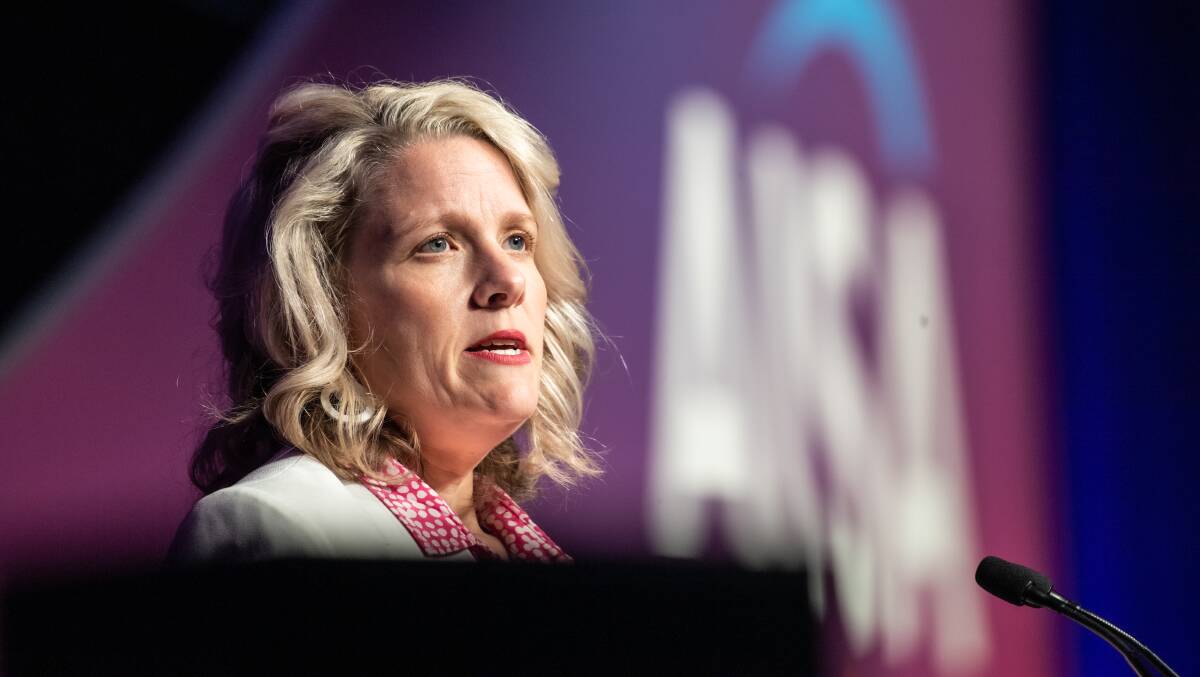The government's plan was to have inflation ease enough to prompt the Reserve Bank to cut rates later this year, and to do it all with consecutive budget surpluses under its belt.
But as Mike Tyson once observed, "everyone has a plan, until they get punched in the face".
Other stuff happened, as it always does in politics. Welcome to what Treasurer Jim Chalmers defined midweek as an era of ongoing "churn and change" replacing the "calm and consensus" which succeeded the Cold War.
Landing a globally exposed market economy into a domestic political window is moonshot stuff.
As Chalmers is finding, persistent inflation now looks like not only delaying mortgage relief, but perhaps making pre-election largesse problematic as well.
Then there's the rolling omnishambles of foreign criminals being released into the community only to commit fresh crimes. Allegedly.
Suddenly, between a vote-killing cost-of-living crisis, and the tabloid gold of an immigration-related community threat, certain harsh realities must be confronted.
One is that if Anthony Albanese is to avoid the ignominy of leading the first one-term federal operation since James Scullin (1930-1931) his government needs to retune its electoral antennae and sharpen its reflexes.
The tumbling of 100-year-old byelection records - Aston (2023) and the SA seat of Dunstan (2024) - suggests the Treasurer's "churn and change" descriptor applies to elections also. Volatility can cut both ways.
Another harsh reality for Labor to grapple with is Peter Dutton doesn't need to actively win in 2025 so much as he needs Albanese to lose it.
The PM should recognise Dutton's pedestrian calculus having walked it himself against the hapless Scott Morrison, securing victory with a paltry 32.6 per cent of first preferences.
But does he get it? Too often the government seems flat-footed. Of all the portfolios it needed to neutralise this term, the two big ones were the economy and immigration/border security - prime political vulnerabilities when Labor was last in office.
As always, the economy is fundamental. With a budget just days away, Chalmers has a good story to tell but it is one likely to impress broadsheets more than backstreets. This is the qualitative difference between black ink in the budget, and the lived experience of ordinary people in the real economy.
Put simply, a double surplus is irrelevant to someone who can't register their car or use the heating as winter worsens.
No doubt Chalmers would like to do more to ease household pain but can he?

He says past assistance has come in ways that bring prices down such as direct energy bill relief, but there are limits even here and ever-climbing prices have made voters increasingly unhappy, anyway.
Worse, it may stay this way into next year. Some economists last week warned the next interest rates move might not even be downwards.
Dutton will use these tough circumstances to depict the Prime Minister as weak and ineffective - his new sledge drawn straight from focus group testing. The implication we are meant to take is he, by contrast, is a strong leader.
Chalmers may be a standout and is fortunate to face the opposition's shadow treasurer Angus Taylor who emanates weakness himself.
On the rare occasions Taylor asks questions in Parliament he usually winds up wishing he hadn't.
But underperformance is not exclusively an opposition problem.
Limited scope on the spending side only increases the importance for Labor of not carrying other political baggage through to the polls.
This raises the question of whether Albanese should reshuffle his frontbench in order to re-energise his government and seize control of problems certain to hang around.
Arguably, Clare O'Neil in Home Affairs and her junior minister Andrew Giles in Immigration could be swapped into other portfolios. Both have futures but neither has been on top of their officials, much less the problem of foreign nationals being released willy-nilly after serving custodial sentences.
Albanese desperately needs somebody to take charge because the next infraction by an ex-detainee is a question of 'when' rather than 'if'.
Graphic pictures of a 73-year-old woman brutally bashed and robbed in a home invasion in Perth - allegedly by an Iranian man whose bail had not been opposed by the government - bespeak a system in chaos. And a department in total disarray.
In hindsight, it was a lapse of judgement to place two first-time ministers in what for Labor is such a pivotal role, especially one that is a known strength for Dutton.
Housing has been another area where despite tossing in billions of dollars, the government has been towelled up by an ascendent Greens campaign for rent caps and vastly more low-income house construction.
Housing Minister Julie Collins has toiled away but has failed to dominate the space.
There are other changes to consider also, including new backbench talent to draw on.
Labor needs to get active. Its working assumption that Dutton scares voters and is unelectable, is hubris.
It ignores the unpopularity of Tony Abbott, whose disapproval rating in Newspoll two weeks out from the 2013 election was 51 per cent. He won with 90 seats to Labor's 55.
And it ignores the pale enthusiasm for Albanese himself in 2022.
Both times, voters wanted rid of the government - all the opposition had to do was be there.
- Mark Kenny is The Canberra Times' political analyst and a professor at the ANU's Australian Studies Institute. He hosts the Democracy Sausage podcast.


